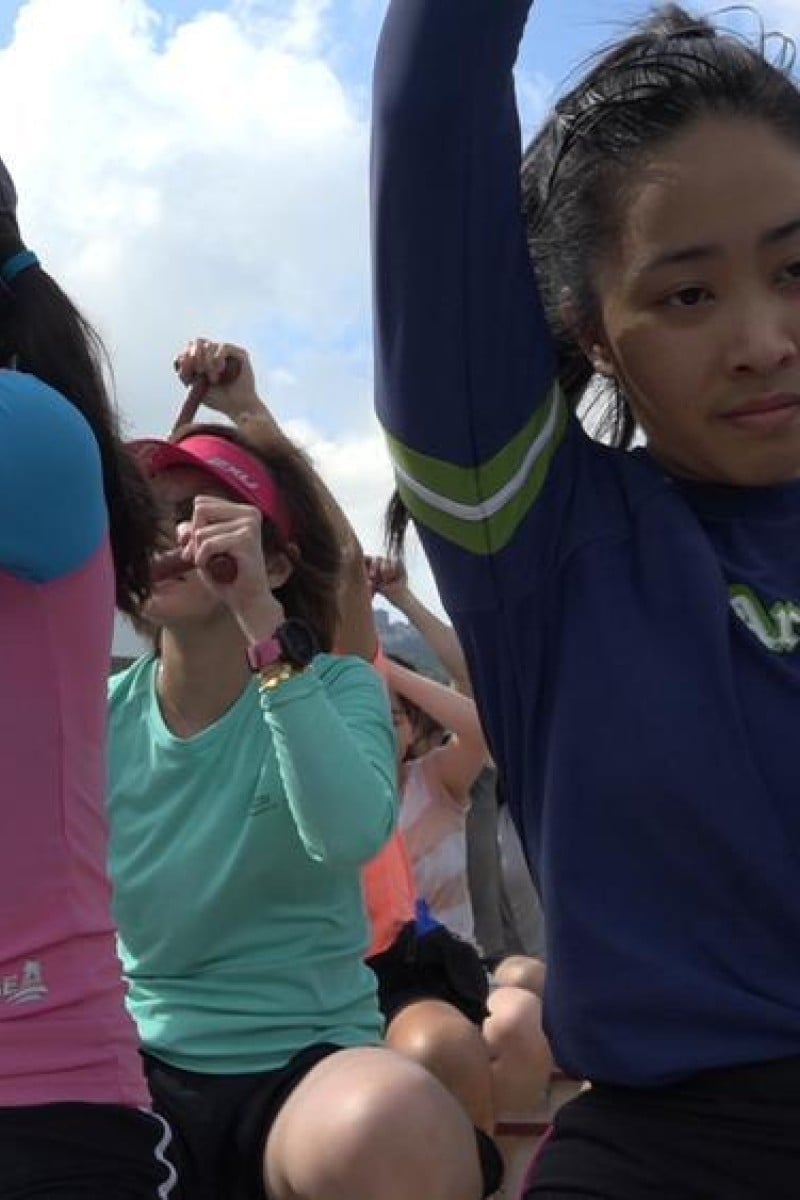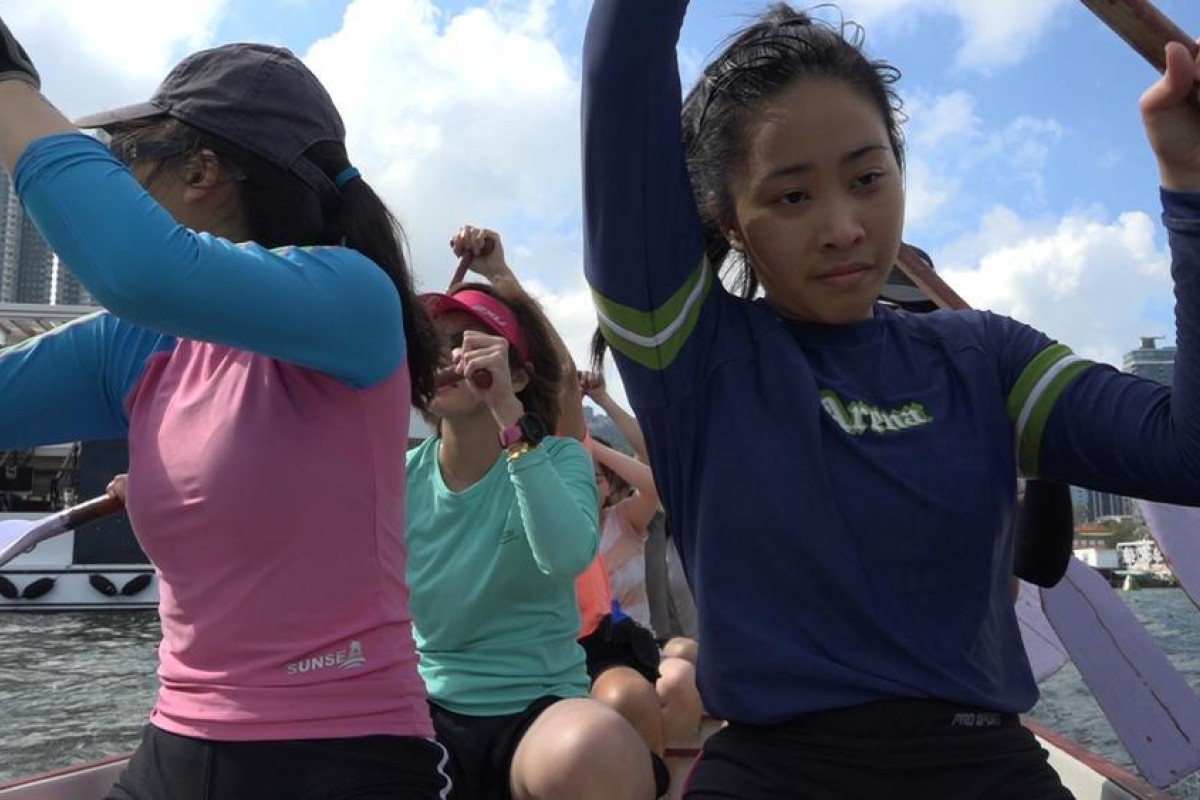
- YP Junior reporters had the chance to test the waters in an introductory dragon boat course held in Ap Lei Chau by the Aberdeen Dragon Boat Race association
- In the 2,000 years since it began, Dragon Boat racing has gained international recognition

 Christine Ling (left) and Heather Ng were taught the basic techniques of dragon boat racing.
Christine Ling (left) and Heather Ng were taught the basic techniques of dragon boat racing. A popular Chinese tradition, dragon boat racing commemorates the death of ancient poet Chu Yuan. It also pays respect to the dragon, the ruler of the water. Having started more than 2,000 years ago in China, dragon boat racing has since gained international recognition. The water sport is now enjoyed in more than 35 countries.
Dragon boat racing is so full of energy and colour, it’s no wonder people are attracted to it. Teams of paddlers race to the finish line in long, narrow boats, cheered on by the beating of drums. The 500m and 200m sprints are the most common distances, with longer races being held over 2,000m, 12km, 25km and 55km.
Aberdeen Dragon Boat Race is organising free hour-long sessions for people new to the sport. A single 12-metre dragon boat has a crew of 20, with 18 paddlers sitting in pairs on 10 benches, a drummer at the front of the boat and a steersman in the back. It was the first time we had tried this activity, and it felt daunting as we were the youngest members of the team. I was worried that we wouldn’t have enough arm strength to keep up. The only rowing I’ve ever attempted is the rowing machine at my gym. However, we were excited to give rowing our best shot.
The traditional family business of crafting a Tuen Ng festival dragon boat
How to paddle
After some light stretching, our instructor Leo took us through the four different movements of the paddling action. He corrected our posture, and after giving us life vests and explaining safety procedures, we boarded the boats.
The four paddling movements he taught us are the basic skills required in dragon boating.
First, the “hold water” action is used to steady the boat by holding the paddle perpendicular to the water. Then there are the simple rowing techniques which include “draw”, “stroke” and “exit”.
How dragon boat racing brought Leon Chan Yik-long and his dad closer together
Soon it was time to take to the water with our new skill sets. At first, we were quite hesitant to experiment with the different methods of paddling. When we first tried paddling continuously for 20 counts, most of us became frustrated at how tough it was. But as we practised, the movements came with more ease and gradually we gained confidence.
The most challenging parts of the whole experience were pushing ourselves to our physical and mental limits and, more importantly, finding a rhythm as a team. Under the unforgiving heat, we found it difficult to maintain our composure and paddle at a consistent speed. As beginners, it was exhausting at times. It forced us to the edge of our capabilities, testing our endurance.
That was not the only struggle, however. As an entire group of beginners, it was extremely difficult to find a steady rhythm to paddle with. Since it’s important for rowers to be able to row at the same time in dragon boating, it was quite a challenge at first to move more than a few metres forward. However we were eventually able to find our ground and paddle in a more synchronised manner.
How the Dragon Boat Festival's origin story helps keep local heritage alive
Mental and physical work
This experience gave us a completely new understanding of dragon boating. Not only did we learn the primary skills of paddling a dragon boat, but we also discovered the importance of synchronicity and teamwork. Furthermore we discovered that dragon boat racing, just like any other sport – but perhaps even more, requires a lot of mental and physical work.
This experience was great and we encountered the good and bad of dragon boating. If we have the chance to do this again, I would definitely jump at the opportunity. It was a unique day out for us, filled with fun, laughter, sweat and tears (happy ones, of course), although next time we would hope for cooler weather.
Want to go to events like this one, meet stars and inspiring people, take part in workshops, work with professional journalists, and get your stories published in Young Post? Register now to join the Junior Reporters’ Club!
